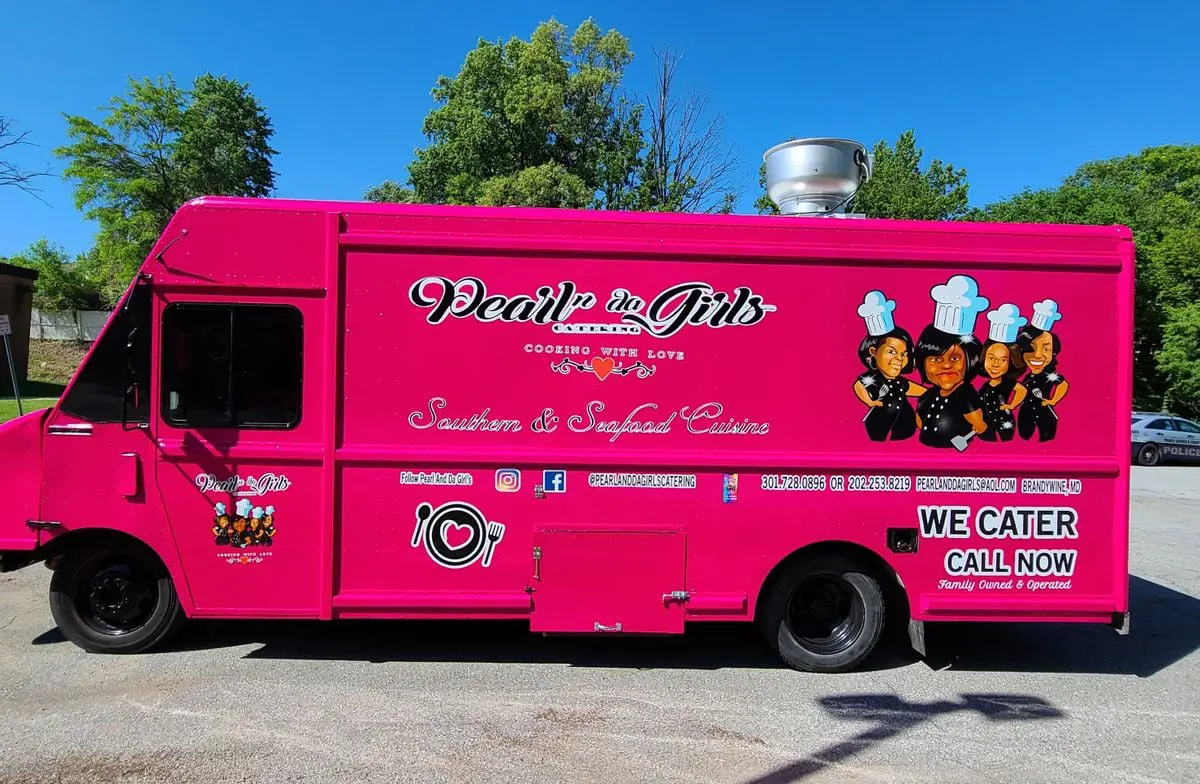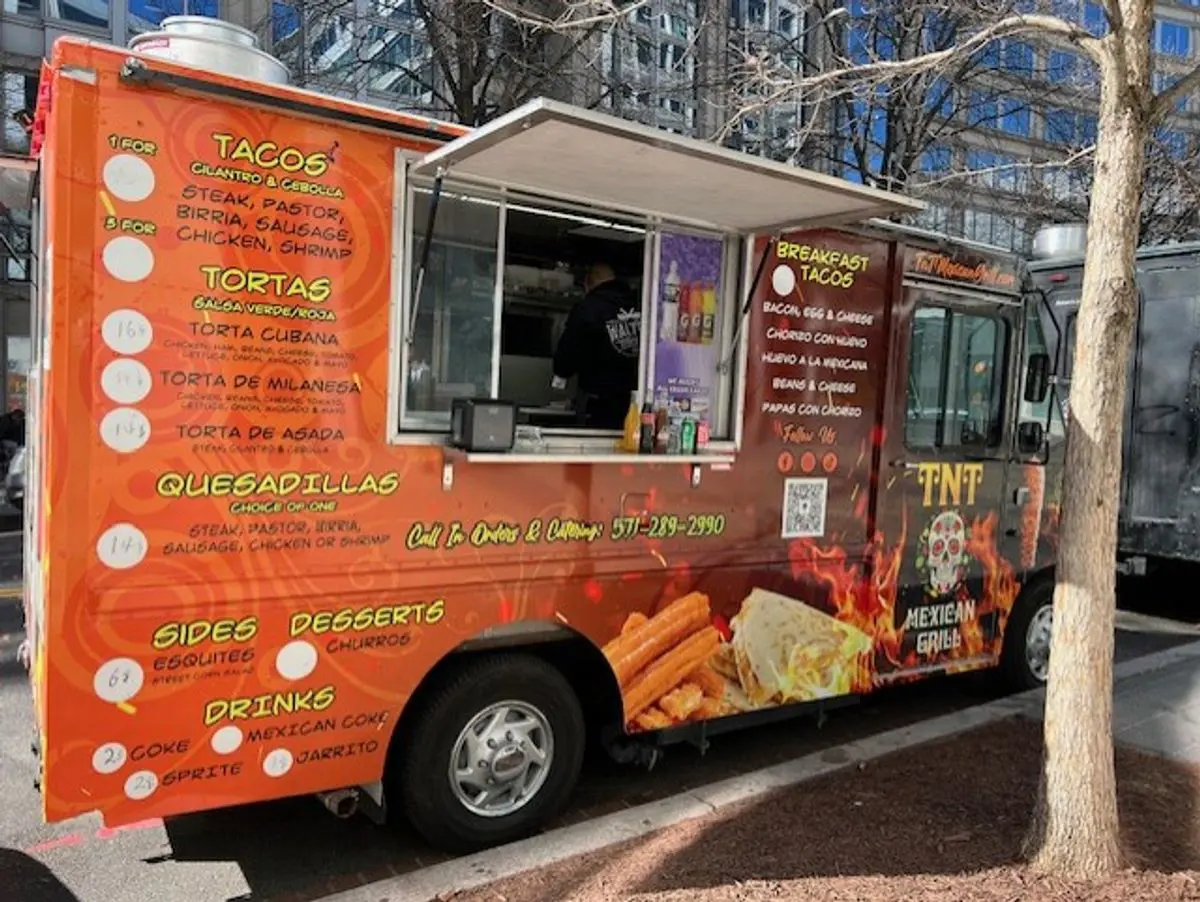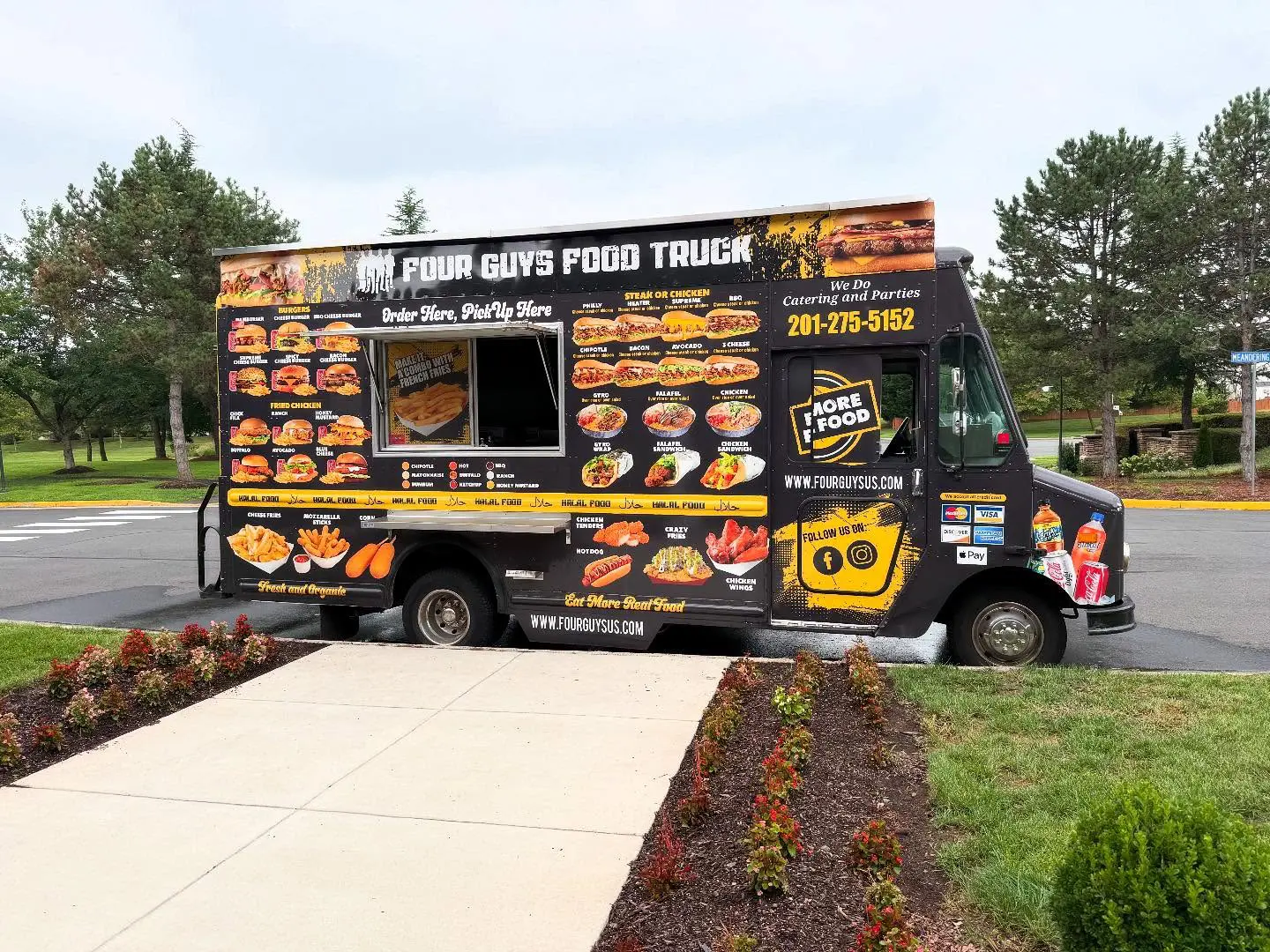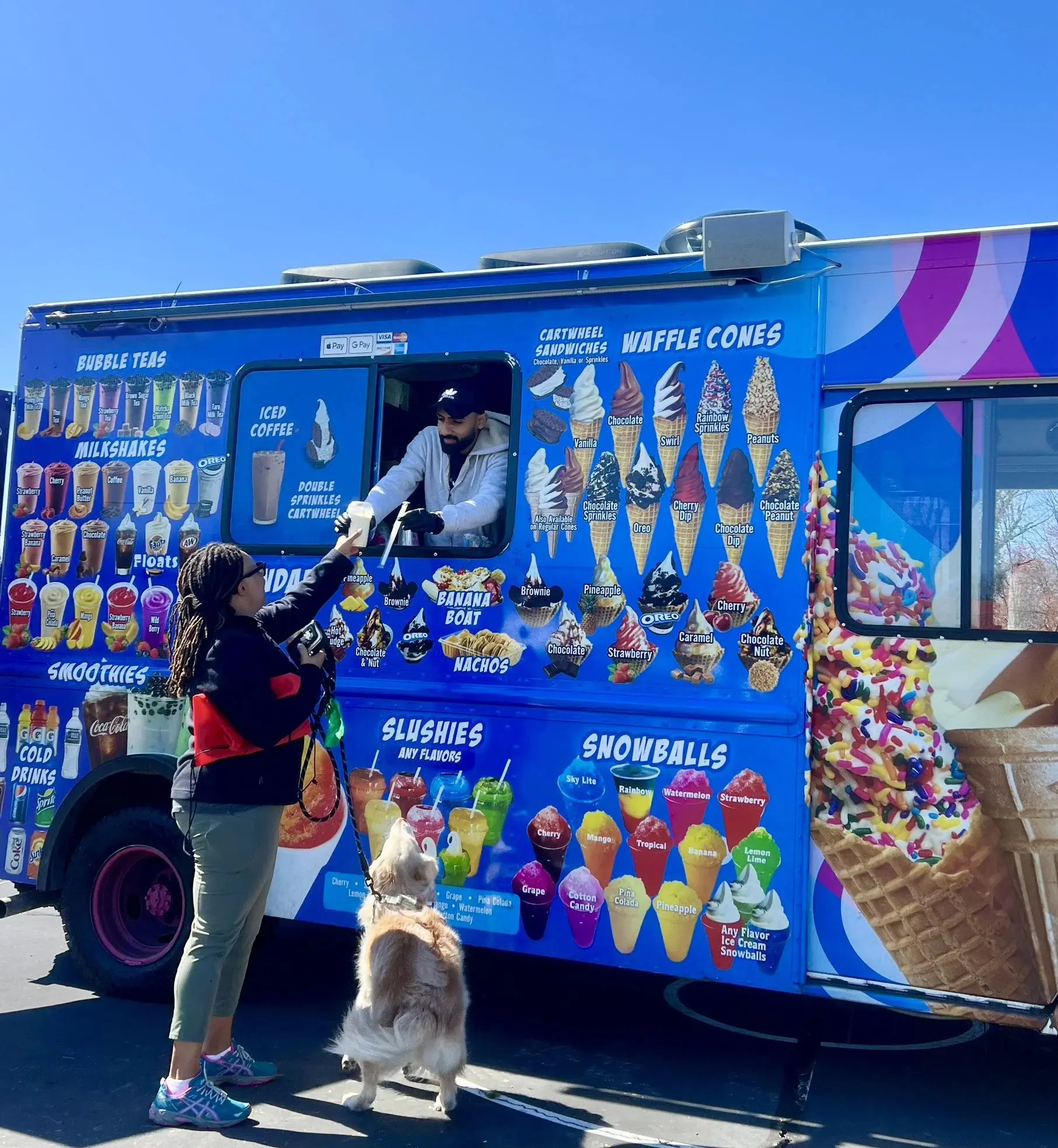Catering Costs 2025
A Comprehensive Guide to Food Truck Catering Costs in Washington, D.C. (2025)
Washington, D.C., the epicenter of American politics, history, and culture, transforms any event into something extraordinary. Imagine your corporate gala overlooking the Lincoln Memorial, a wedding reception in the blooming cherry blossoms of spring, or a casual neighborhood block party in Adams Morgan buzzing with energy. Food trucks have become the go-to catering choice for these occasions, offering not just delicious, freshly prepared meals but also an interactive, street-food vibe that keeps guests engaged and delighted. In a city where traditional catering can feel stuffy and overpriced, food trucks bring accessibility, variety, and a touch of urban flair, making them perfect for everything from high-powered networking mixers to intimate family celebrations.
But while the appeal is undeniable, budgeting for food truck catering in D.C. demands savvy planning. The District's unique challenges, from stringent vending regulations to notorious traffic, influence pricing in ways that might surprise newcomers. This guide unpacks the 2025 landscape, drawing on current market data to reveal average costs, pricing models, key variables, hidden fees, and insider tips for booking. Whether you are hosting a 50-person office happy hour or a 200-guest wedding, expect to pay $25 to $50 per person on average, with event minimums starting at $1,200 to $2,000. By the end, you will have the tools to secure quotes that align with your vision and wallet, ensuring your event is as flavorful as it is feasible.
The Bottom Line: Average Costs at a Glance for 2025
In Washington, D.C., food truck catering strikes a balance between affordability and excitement, often costing 40 to 60 percent less than sit-down catered affairs. Based on aggregated data from platforms like Roaming Hunger and Best Food Trucks, the typical per-person rate hovers between $25 and $50, translating to $1,250 to $5,000 total for a 50-guest event before add-ons. These figures reflect a modest 3 to 5 percent uptick from 2024, driven by rising ingredient and labor costs amid inflation. Event minimums, a common requirement to cover the truck's opportunity costs, range from $1,200 for weekdays to $2,500 or more for peak weekends, ensuring vendors commit without fear of low turnout.
The Bottom Line: Average Costs at a Glance for 2025
I. Budget-Friendly Tier: $25 to $35 Per Person
This entry point delivers casual, crowd-pleasing options that keep lines moving and budgets intact. Think gourmet tacos with fresh cilantro-lime slaw and house salsas from trucks like District Taco; wood-fired artisanal pizzas topped with seasonal veggies from Timber Pizza Company; or classic all-beef burgers and truffle fries from The Good Stuff Eatery. These menus emphasize efficient prep and high-volume service, ideal for corporate lunches in Foggy Bottom or birthday parties in Columbia Heights. For a group of 100, base costs land at $2,500 to $3,500, often including unlimited soft drinks and basic sides. This tier shines for events under 75 guests, where the per-person rate feels especially value-packed.
II. Mid-Range Tier: $35 to $45 Per Person
Here, creativity meets quality, capturing D.C.'s diverse culinary pulse. Signature offerings might include Korean BBQ tacos with kimchi and gochujang aioli from food trucks like The Korean BBQ Taco Truck; farm-to-table salads and grain bowls with local Potomac Valley greens from Sweet Green's mobile outpost; or slow-smoked brisket platters with cornbread and collards from Rocklands Barbeque's truck. Preparation involves premium proteins and house-made sauces, suiting networking receptions at the Kennedy Center or engagement parties in Shaw. At 100 guests, anticipate $3,500 to $4,500, with packages often bundling two to three entrees, a side, and eco-friendly disposables. This sweet spot accounts for 60 percent of D.C. bookings, blending approachability with Instagram-worthy appeal.
III. Premium Tier: $45 to $50+ Per Person
For elevated experiences, this category invests in luxury and locality. Envision Chesapeake Bay crab cakes with remoulade from mobile extensions of Fiola Mare; hibachi-style sushi rolls and wagyu skewers from Kapnos' truck; or vegan Ethiopian injera platters with berbere-spiced lentils from Etete's roving kitchen. Sourcing from D.C.-area farms and fisheries drives the premium, perfect for galas at the Smithsonian or milestone weddings in Georgetown. Costs for 100 guests start at $4,500 and climb with customizations like passed apps or wine pairings. While pricier, these trucks often include white-glove service elements, justifying the splurge for upscale affairs.
These estimates assume a standard two- to three-hour window and exclude taxes, fees, or overtime. For smaller events (under 50 guests), minimums dominate, potentially making per-person rates feel inflated. Conversely, groups over 150 may negotiate 10 to 15 percent discounts due to volume efficiencies.
Understanding Pricing Structures in D.C.'s Food Truck Scene
D.C. food trucks employ two primary models, each suited to different event dynamics. The per-person rate is the gold standard for predictability, charging a flat fee per attendee that covers food, disposables, and basic staffing. Packages typically feature two to three entrees, one side, and a beverage, served buffet-style from the truck's window. This scales seamlessly for confirmed headcounts, like seated corporate dinners or RSVP-heavy weddings.
The event minimum, or guaranteed spend, acts as a safety net for vendors amid D.C.'s unpredictable attendance. You pledge a baseline revenue, say $1,500 for a Thursday mixer; if sales dip to $1,200, you cover the $300 shortfall. This model favors open-house formats, such as festivals on the National Mall or brewery gatherings in Navy Yard, where guests flow freely. Hybrids blend both, with per-person caps after hitting the minimum. In 2025, D.C.'s post-pandemic recovery has stabilized these structures, but expect slight premiums for eco-conscious options like compostable ware or plant-based menus, reflecting the city's green initiatives.
Key Factors That Influence Your Final Quote
Crafting a quote is an art in D.C., where variables interplay like Metro delays during rush hour. Mastering them empowers negotiation and customization.
Cuisine and menu complexity lead the pack, with basic carbs like pizza or wraps costing 20 to 30 percent less than protein-heavy or imported fare. Seafood or global spices inflate due to sourcing challenges in a landlocked urban hub.
Guest count is linear in per-person models but unlocks savings at scale; trucks amortize setup (e.g., $300 for generators) over larger crowds, dropping rates by $2 to $5 per head beyond 100. Small events trigger minimums, effectively raising effective per-person costs.
Service duration defaults to two to three hours, encompassing setup, peak serving, and breakdown. Extensions add $200 to $400 hourly, covering extra staff and fuel for idling in traffic. Day and time reflect demand peaks: Weekday lunches (Monday to Thursday) save 15 to 25 percent versus Saturday evenings in cherry blossom season (March to April) or during major events like the National Cherry Blossom Festival. Holidays like July Fourth command 20 percent surcharges.
Location and logistics amplify D.C.'s quirks. Within the core (e.g., Dupont Circle), no travel fees apply; venturing to Arlington or Bethesda incurs $1.50 to $3 per mile, plus parking hunts in historic districts like Georgetown. Venue restrictions, such as no-propane rules in federal buildings, may require adapters at $100 to $200. Traffic models from 2025 data show trucks averaging 45 minutes extra for cross-Potomac trips, baked into quotes.
By quantifying these—e.g., 75 guests, mid-range BBQ, three hours on a Friday in May at the Wharf—you can benchmark against averages for sharper negotiations.
The Hidden Menu: Potential Additional Fees
Transparency varies, so insist on itemized quotes to sidestep sticker shock. D.C.'s regulatory environment adds layers unique to the capital.
Sales tax hits 10 percent on prepared foods and beverages, applied post-subtotal and covering everything from tacos to craft sodas. This jumps from the general 6 percent rate, catching many off guard for catering totals.
Service charges or gratuity range from 18 to 22 percent, funding staff wages amid D.C.'s $17 minimum wage (rising to $17.50 in 2025). Clarify if this is mandatory or tip-eligible; some trucks designate it as non-taxable if passed directly to employees, but most tax it as revenue.
Permits are a D.C. hallmark for public venues like parks or the Mall, costing $50 to $300 per event, often host-borne. Private spots (e.g., rooftop bars) may waive, but confirm vendor compliance to avoid fines up to $1,000.
Parking fees average $20 to $50 in metered zones, reimbursable if your venue lacks a dedicated space. Fuel surcharges, at $50 to $100 for long hauls, tie to 2025's $3.80/gallon averages.
Customization fees, $5 to $10 per person for off-menu tweaks li
Step-by-Step Guide to Securing Your Ideal Booking
1. Define your needs: Event type, guest estimate (plus 10 percent buffer), date, venue, and budget ceiling.
2. Research vendors: Shortlist five to seven via platforms, prioritizing 4.5+ ratings and D.C.-specific reviews.
3. Request quotes: Submit details for three options, including menus at varied tiers.
4. Compare apples-to-apples: Factor totals with fees; negotiate minimums for off-peak slots.
5. Contract and confirm: Secure with a 25 to 50 percent deposit, verifying insurance ($1M liability minimum).
6. Day-of prep: Coordinate parking and utilities; communicate allergies.
This process, started three months out, minimizes stress.
Why Food Trucks Reign Supreme in D.C. Events
Beyond savings, food trucks embody D.C.'s innovative spirit, supporting 300+ small businesses amid regulatory hurdles. They cut waste via portion control, integrate with apps for line-free ordering, and adapt to venues from the Wharf to White House-adjacent lawns. In 2025, trends like fusion (e.g., D.C.-style half-smoke sushi) and zero-emission trucks elevate the experience.
Final Thoughts: Fuel Your Event with Confidence
Food truck catering in Washington, D.C., turns gatherings into gastronomic adventures without the hefty price tag. By decoding per-person rates, minimums, and fees, you sidestep pitfalls and spotlight savings. Book boldly, savor the streets' best, and let your event reflect the capital's vibrant pulse. Your guests will thank you—with full bellies and fond memories.




